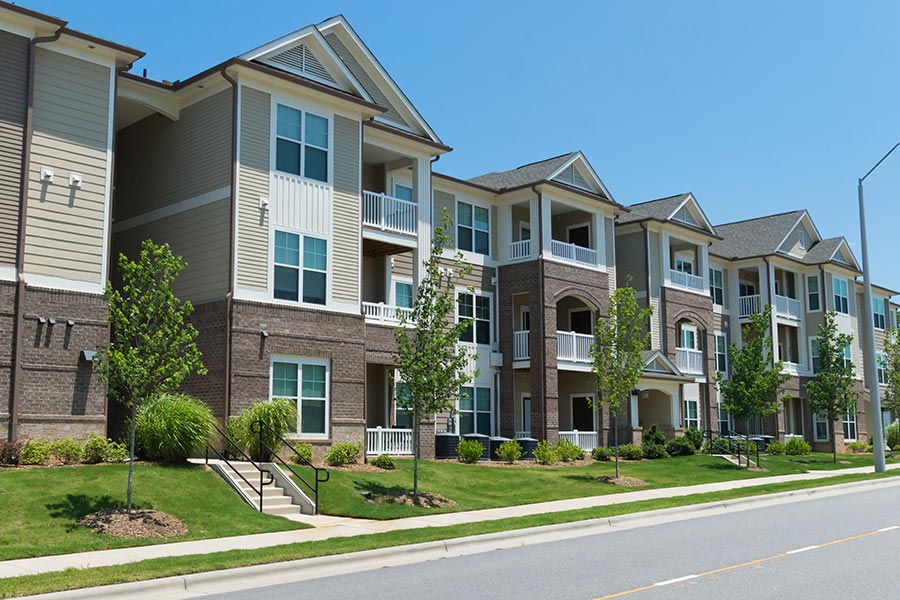Expert Advice on Securing Affordable Homeownership and Financial Stability
Expert Advice on Securing Affordable Homeownership and Financial Stability
Blog Article
Budget-friendly Homeownership Options for First-Time Homebuyers
As the housing market proceeds to develop, novice buyers face one-of-a-kind difficulties in protecting economical homeownership alternatives. Various resources, consisting of entitlement program programs, low-down-payment home loans, and targeted gives, have actually arised to alleviate economic stress. These initiatives not just assist in homeownership yet additionally foster area security and financial development. Nonetheless, navigating these choices can be intricate, and understanding which pathways are most beneficial calls for cautious consideration. What approaches can prospective home owners employ to maximize their chances in this landscape?
Federal Government Aid Programs
Entitlement program programs play a critical function in making homeownership possible for numerous individuals and households. These programs intend to minimize the monetary burden related to purchasing a home, particularly for new purchasers. By using economic help, gives, and tax obligation rewards, federal government efforts assist bridge the space in between increasing housing prices and the buying power of possible property owners.
Various programs are readily available at the federal, state, and neighborhood degrees. For example, the Federal Real Estate Management (FHA) supplies insurance policy on fundings, allowing lenders to provide much more beneficial terms, such as reduced deposits and lowered rates of interest. Additionally, state and neighborhood governments frequently have their own efforts, which might consist of down payment help programs, buyer education programs, and desirable home mortgage terms.
These programs are designed to resolve the one-of-a-kind difficulties dealt with by reduced- to moderate-income families, consisting of restricted financial savings and credit rating. By promoting an atmosphere where homeownership is much more easily accessible, government help programs not just sustain individual goals however also contribute to area security and financial growth. Recognizing and utilizing these resources can significantly boost the potential customers of successful homeownership.
Low-Down-Payment Mortgages
For many aspiring house owners, low-down-payment mortgages provide a practical path to homeownership, specifically in today's difficult real estate market. These home loan choices commonly need down repayments varying from 3% to 5%, making it less complicated for novice buyers to enter the market without the concern of conserving for a significant deposit.
Different lenders offer low-down-payment programs, including standard car loans backed by Fannie Mae and Freddie Mac, along with government-backed options like FHA loans. These home mortgages are developed to fit people with minimal financial savings while still providing affordable rate of interest. Importantly, they enable buyers to retain even more cash money for other essential expenditures, such as relocating expenses, home examinations, and potential remodellings.
Nonetheless, possible homeowners need to be mindful of the trade-offs associated with low-down-payment home mortgages. A smaller down repayment might cause greater month-to-month payments and the need of personal mortgage insurance policy (PMI), which protects lenders in instance of default. For that reason, it is critical for first-time customers to carry out detailed research and talk to home loan professionals, ensuring they pick a low-down-payment alternative that lines up with their long-term economic goals. Affordable Homeownership.
First-Time Homebuyer Grants
Lots of new property buyers find that gives can substantially relieve the financial problem of acquiring a home, enhancing low-down-payment mortgage options. These gives, usually provided by state and non-profit companies or local governments, use financial aid that does not require payment, making them an eye-catching option for those going into the real estate market.
Eligibility for novice buyer gives commonly depends upon earnings, credit reliability, and the acquisition price of the home. Several programs are developed to assist low- to moderate-income family members, guaranteeing that support gets to those that require it most. The application procedure typically involves documentation of financial standing, buyer education courses, and often even a commitment to remain in the home for a specific duration.
The amount useful differs commonly, with some grants giving several thousand bucks to aid cover closing prices or deposits. Investigating readily available gives in your location is essential, as programs often change and may have specific demands. By leveraging these funds, novice property buyers can make homeownership extra accessible, ultimately achieving their desire of having a home while reducing the initial economic stress.
Innovative Neighborhood Initiatives
Cutting-edge community efforts are playing a critical role in increasing inexpensive homeownership choices for homeowners. These efforts commonly entail collaborative efforts between regional federal governments, charitable companies, and economic sector stakeholders to develop sustainable real estate remedies customized to neighborhood demands.
One noteworthy strategy is the establishment of area land counts on (CLTs), which enable homeowners to purchase homes while the land stays had by the depend on. This version aids maintain cost over time and protects against speculative rate boosts. In addition, CLTs often offer educational sources and support solutions to encourage new buyers.
One more effective campaign is the growth of mixed-income real estate jobs, which mix economical units with market-rate homes. This approach cultivates inclusive neighborhoods and lowers the stigma frequently connected with low-income real estate. Regional governments are progressively supporting zoning reforms to promote the construction of accessory dwelling units (ADUs), which can supply additional rental income for house owners while boosting real estate schedule.

Tips for Budgeting and Saving

Following, establish a dedicated Recommended Site interest-bearing account specifically for your future home acquisition. Aim to save a percent of your earnings continually, preferably 20% or even more, to develop a substantial down settlement. Use automation devices, such as direct deposit or important site automated transfers, to make conserving easier and much more consistent.
In addition, take into consideration embracing the 50/30/20 rule: designate 50% of your income to requirements, 30% to desires, and 20% to cost savings and financial obligation repayment - Affordable Homeownership. This technique promotes well balanced economic wellness

Verdict
In summary, budget-friendly homeownership options for novice property buyers incorporate various sources such as government support programs, low-down-payment mortgages, and grants. By leveraging these economic devices, people can browse the intricacies of homeownership, inevitably adding to a more fair housing landscape.
As the housing market proceeds to advance, first-time property buyers encounter distinct obstacles in protecting budget-friendly homeownership choices. By promoting a setting where homeownership is more easily accessible, government aid programs not just sustain private ambitions but also add to area stability and financial development. By leveraging these economic resources, new buyers can make homeownership extra available, eventually accomplishing their desire of having a home while mitigating the preliminary monetary pressure.
In recap, economical homeownership options for newbie buyers incorporate various resources such as visit this site federal government support programs, low-down-payment home loans, and grants. By leveraging these monetary tools, individuals can browse the intricacies of homeownership, eventually contributing to an extra equitable real estate landscape.
Report this page